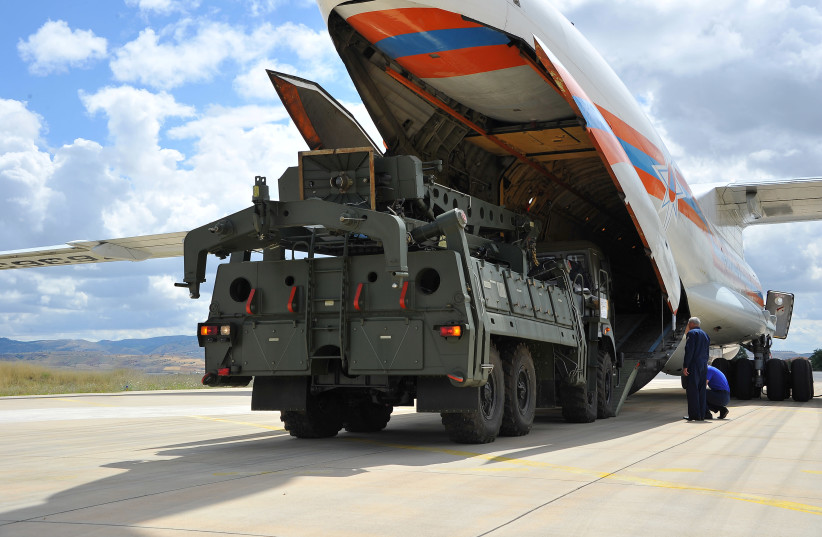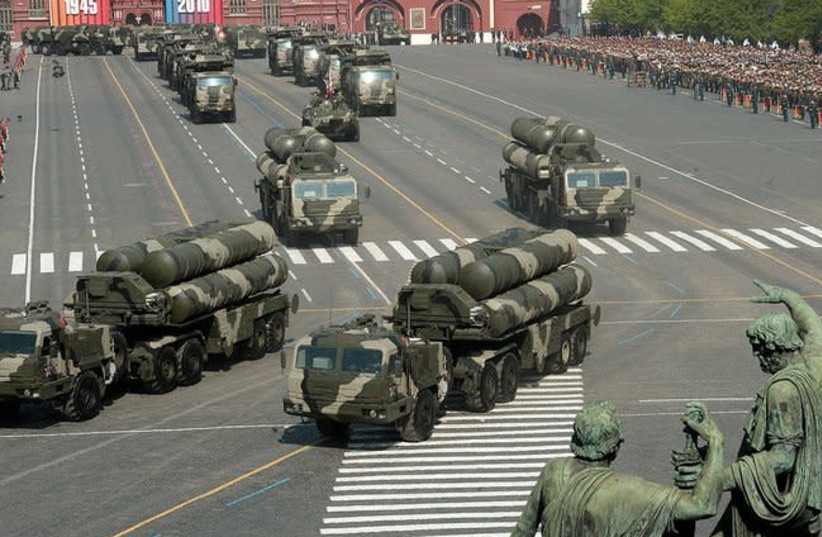Russia has yet to confirm if they will supply Iran with the S-400 missile system.

Iran has requested a new air-defense system, S-400s, from Russia, which could prove problematic for Israel.
Russia has yet to publicly confirm if it will supply the S-400s in question. If supplied, Iran will need only two years for the system to become operational.
The S-400 is a mobile, surface-to-air missile system created by Russia. It engages with aircrafts, unmanned aerial vehicles, and cruise missiles. It also has a terminal ballistic missile defense capability, according to the Center for Strategic and International studies.
Russia has been recieving ammunition from Iran for its invasion of Ukraine, which has helped solidify a military relationship. Now, it is expected that Russia will gift Iran military materials.
Ukraine has said that Russia received 2400 drones from Iran.

Israel, Russia and Iran
Israel has had a neutrality policy in dealing with Russia thus far. This has meant that Israel has sent only humanitarian aid to Ukraine but not military support or resources.
However, Israel has claimed responsibility for strikes against Iranian military factories. This has led to veiled threats, to Israel, from Russia.
“I think we are moving to the point that the chance of success for doing something effective militarily is getting slimmer,” Prof. Avner Cohen, a premier Israeli-American scholar on nuclear proliferation warned in an interview with The Jerusalem Post.
“The longer you wait, the harder that becomes,” Israeli Prime Minister Benjamin Netanyahu said of a strike on Iran at a security conference in Tel Aviv. “We’ve waited very long. I can tell you that I will do everything in my power to prevent Iran from acquiring nuclear weapons.”
National Security Council spokesman John Kirby said that Tehran had sent munitions to Russia last year. “We believe Russia might provide Iran unprecedented defense cooperation, including missiles, electronics, and air defense. We believe that Russia might provide Iran with fighter jets,” Kirby said in a call that was widely reported.
Israel also voted for a resolution that called for Russia to withdraw from Ukraine. Russia’s Ambassador to the UN Vasily Alekseyevich Nebenzya responded by stating, to the whole panel, “It becomes absolutely clear that the Ukrainian crisis was just a catalyst that helped this savage Russophobia to come to the surface and contaminate all American and European elites.”
Adding to the conflicted relationship between Russia and Israel, Moscow banned the Jewish Agency in Russia and declared that it would be considered a “foreign agent.”
Content retrieved from: https://www.jpost.com/middle-east/article-733214.